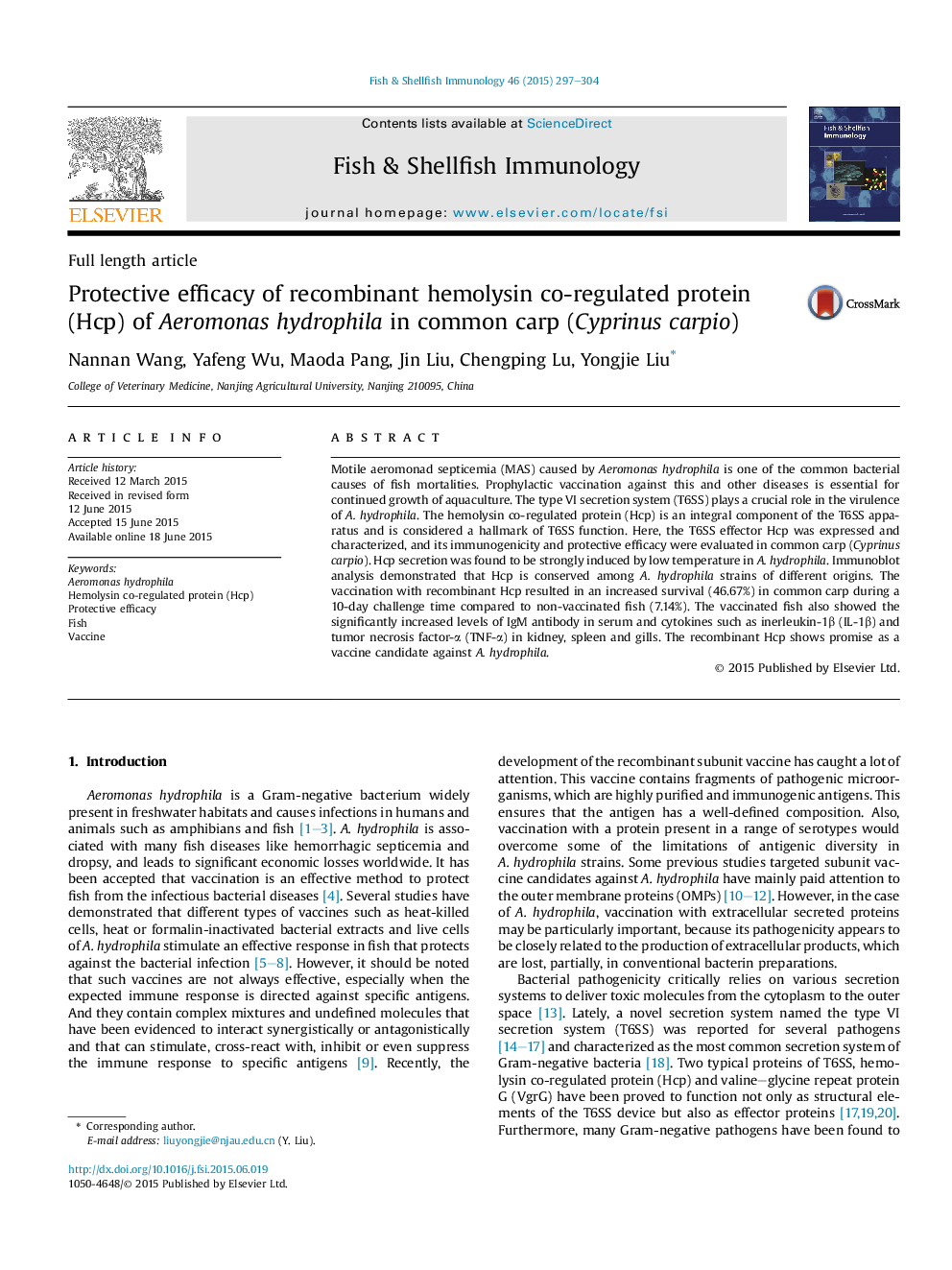| Article ID | Journal | Published Year | Pages | File Type |
|---|---|---|---|---|
| 2431157 | Fish & Shellfish Immunology | 2015 | 8 Pages |
•Hcp secretion was found to be strongly induced by low temperature in A. hydrophila.•Hcp is conserved among A. hydrophila strains of different origins.•The Hcp vaccination provided relative efficient protection against A. hydrophila infection.•The Hcp vaccination could enhance both the innate and adaptive immune responses in fish.
Motile aeromonad septicemia (MAS) caused by Aeromonas hydrophila is one of the common bacterial causes of fish mortalities. Prophylactic vaccination against this and other diseases is essential for continued growth of aquaculture. The type VI secretion system (T6SS) plays a crucial role in the virulence of A. hydrophila. The hemolysin co-regulated protein (Hcp) is an integral component of the T6SS apparatus and is considered a hallmark of T6SS function. Here, the T6SS effector Hcp was expressed and characterized, and its immunogenicity and protective efficacy were evaluated in common carp (Cyprinus carpio). Hcp secretion was found to be strongly induced by low temperature in A. hydrophila. Immunoblot analysis demonstrated that Hcp is conserved among A. hydrophila strains of different origins. The vaccination with recombinant Hcp resulted in an increased survival (46.67%) in common carp during a 10-day challenge time compared to non-vaccinated fish (7.14%). The vaccinated fish also showed the significantly increased levels of IgM antibody in serum and cytokines such as inerleukin-1β (IL-1β) and tumor necrosis factor-α (TNF-α) in kidney, spleen and gills. The recombinant Hcp shows promise as a vaccine candidate against A. hydrophila.
